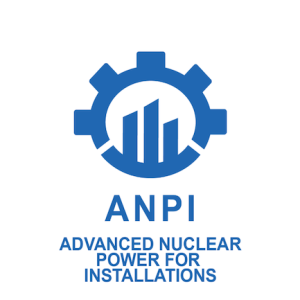US President Donald Trump announced on 8 May that Washington will pull out of the Joint Comprehensive Plan of Action (JCPOA) with Iran, negotiated by six major powers in 2015, and will impose the highest level of economic sanctions on Tehran. He then signed an executive order reimposing sanctions on any foreign company that continues to do business with Iran. The order gives companies 90-day or 180-day grace periods to extract themselves from existing Iranian contacts or face punitive US measures.
In July 2015, after more than a decade of negotiations, Iran signed the JCPOA with the US, UK, France Russia, China and Germany under which Iran agreed to limit its nuclear development programme in return for the lifting of sanctions.
The US Treasury, in a statement on its website, it said sanctions would be reimposed on the industries mentioned in the 2015 deal, including Iran's oil sector, aircraft exports, precious metals trade, and Iranian government attempts to buy US dollar banknotes.
In reintroducing sanctions, Trump referred to allegations by Israeli Prime Minister Benjamin Netanyahu that Israel had documents detailing past Iranian work on nuclear weapons development. Israel had long been pressing for an end to the deal. Netanyahu said Israel “fully supports President Trump’s bold decision” to reject the nuclear deal. In recent weeks French President, Emmanuel Macron, Germany’s Chancellor, Angela Merkel and UK Foreign Secretary Boris Johnson had all visited Washington to lobby in support of the JCPOA. However, pressure from Israel and Saudi Arabia to end the agreement proved more effective.
Following Trump’s announcement, the leaders of the UK, France and Germany, issued a statement expressing their “regret and concern” and emphasising their “continuing commitment” to the deal. “We urge the US to ensure that the structures of the JCPOA can remain intact, and to avoid taking action which obstructs its full implementation by all other parties to the deal,” the statement said. In a separate tweet, Macron said: “France, Germany, and the UK regret the US decision to leave the JCPOA. The nuclear non-proliferation regime is at stake.” The European Union's (EU’s) top diplomat, Federica Mogherini, said the EU was "determined to preserve" the deal. Former US president Barack Obama, whose administration negotiated the deal, described Trump’s move as “a serious mistake”.
Iran’s President, Hassan Rouhani, said he believed the agreement could survive if the other negotiating partners continued to support it. However, he warned that he had instructed the Atomic Energy Organisation of Iran (AEOI) to prepare to restart enrichment of uranium at an industrial level after a few weeks if the deal collapses completely.
Following the JCPOA, Iran agreed to reduce its stockpile of low-enriched uranium by 98% to just 300lbs for 15 years and to limit the number of centrifuges installed to enrich uranium for ten years. It dismantled some 13,000 of its centrifuges, leaving just over 5000 of its oldest-model machines in place. It ceased all enrichment at its underground facility at Fordow, which – like other Iranian nuclear sites – was put under continuous international monitoring by the International Atomic Energy Agency (IAEA). Iran also agreed to modify a heavy water research reactor, which was already under construction, so it could not produce plutonium. That work is well underway with assistance from China, Russia and the USA. The IAEA has repeatedly confirmed that Iran complies with all the restrictions agreed to in 2015.
Rouhani said, “from now on JCPOA is between Iran and only five countries”. He added: “We will wait and talk with our friends and the signatories to the deal, if it guarantees our interests we will remain within the deal, else we will decide otherwise. We have prepared ourselves for this situation. He said he had ordered the foreign ministry to talk with the European countries, China and Russia.
Earlier, Vladimir Yermakov, director general of the Department for Non-Proliferation and Arms Control at Russia’s Foreign Ministry, told reporters that a US withdrawal from the JCPOA did not necessarily mean the end of the deal.
“It might even be easier for us on the economic front because we won’t have any limits on economic cooperation with Iran. We would develop bilateral relations in all areas – energy, transport, high tech, medicine,” he said. He noted that keeping the deal alive was in the best interests of international security.






